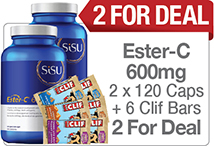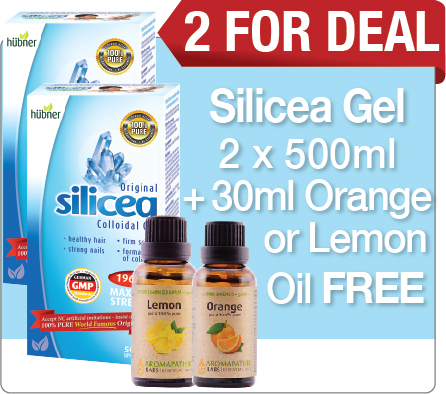- 500 mg
- Vitamin C (ascorbic acid)
- 500 mg
- Quercetin (bioflavonoids)
Vegetarian capsule (carbohydrate gum [cellulose], purified water), microcrystalline cellulose, vegetable grade magnesium stearate (lubricant), stearic acid, silica.
Format
 Tablets
Tablets
90 Tabs
Dosage
Adults take 1 tablet daily with food or as directed by a health care practitioner.
Important Information
Contains no preservatives, sweeteners, gluten, or GMOs
- Supports immune function
- Contains antioxidants that help protect against free radicals
- Helps in collagen formation to maintain healthy bones, cartilage, teeth, and gums
- Supports the body’s ability to metabolize nutrients
- Assists in preventing vitamin C deficiency
Related Videos
Articles by a naturopathic doctor.
Based in British Columbia, Natural Factors Canada is one of the largest manufacturers of nutritional products in North America. Natural Factor Supplements origins reach back to the 1950s, & right from day one, they've been fully committed to making products right. Today, Natural Factors vitamins brings you tested and true products like Acidophilus and Bifidus, Ultimate Multi Probiotics, RX Omega-3, Theracurmin, PGX Daily, Whey Factors Protein and Oil of Oregano all of which you can BUY right here at National Nutrition.ca.
Quercetin
Quercetin is commonly used for reducing excessive inflammation and allergies, as well as protecting the cardiovascular system...
One of the most well known bioflavonoids is called quercetin. It is found in varying amounts in fruits, vegetables, leaves and even grains. The name is derived from the Quercus (oak) species of trees, which was the first known source of quercetin. Healthcare practitioners use quercetin in the treatment of allergies, inflammatory conditions, and in the protection of the cardiovascular system.
Benefits of Bioflavonoids
Bioflavonoids are essential for the proper absorption of vitamin C. The body cannot produce them directly, so they must be ingested through the diet. These molecules are generally very useful in the protection of the circulatory system by helping to strengthen the vein and artery walls. Bioflavonoids have also been long used to reduce excessive immune responses by inhibiting pro-inflammatory signaling molecules in the body. This helps them be of benefit in the treatment of autoimmune disorders and allergies. All bioflavonoids are also excellent antioxidants that help to neutralize free radicals and protect the body against toxins that promote aging and damage to the cardiovascular system. For more information on these and many other benefits, please see our Bioflavonoids article.
Inflammation and Allergies
Quercetin has also been shown to be anti-inflammatory and to directly help prevent incorrect immune responses like those involved in autoimmune conditions and allergies. In fact, supplementation with quercetin has been shown to stabilize certain immune cells, called mast cells, to prevent their release of histamine. Mast cells release histamine when they come into contact with an allergen. Histamine triggers other immune cells to migrate to the area so that the body mounts an immune response. It is this immune response that is responsible for allergic symptoms such as runny nose and itchy watery eyes. By preventing histamine release, quercetin can help to prevent environmental and skin allergies. For more information on this effect, please see our Autoimmune Disease and Allergy articles.
Cardiovascular Health
Like many other bioflavonoids, quercetin can help to protect the vasculature and heart against damage. Some initial research has also found that quercetin can help to reduce LDL (“bad”) cholesterol and also help to reduce blood pressure as well. Some research has come out that contradicts the results of these studies, so further research is required to be sure of these effects. For other ways to protect the heart and lower blood pressure please see our Cardiovascular Health and Blood Pressure articles.
Quercetin and Rutin
Rutin is another bioflavonoid that can act as a precursor of quercetin. In fact, rutin is made up of quercetin bound to a double sugar molecule. In the body, rutin can be quickly converted to quercetin. Rutin has anti-inflammatory properties that help to reduce improper immune responses like those involved in autoimmune diseases and allergies. For more information, please see our Rutin article.
How can I get more quercetin?
There are a wide variety of dietary sources of quercetin available. Some food sources are: black and green teas, capers, apples, red onion, red grapes, citrus fruit, tomato, broccoli, berries and leafy green vegetables. Please note that cooking, heat, light, oxygen and pollutants, like cigarette smoke, destroy bioflavonoids, so be sure to keep that in mind if you wish to get yours from food sources. Supplemental quercetin can be found alone or in combination with other bioflavonoids or nutrients for the treatment of many of the conditions listed above. The recommended dose of quercetin is between 300 and 1500mg daily in divided doses. For every 500mg of vitamin C supplemented, 100mg of bioflavonoids should also be used.
Quercetin – Quick Facts
Food Sources
· Oak (Quercus) Species. Black And Green Teas, Capers, Apples, Red Onion, Red Grapes, Citrus Fruit, Tomato, Broccoli, Berries And Leafy Green Vegetables.
Deficiency Symptoms
· Cardiovascular Health, Autoimmune Diseases, Allergies.
Optimum Dosage
· Quercetin 300 – 1500mg Daily. (Clinical Doses May Differ As Recommended By Your Practitioner).
Works Well With
· Vitamin C, Other Bioflavonoids
Important Information
· Excessive Intake Can Result In Diarrhea.
· For Every 500mg Of Vitamin C One Should Take In 100mg Of Bioflavinoids.
· Quercetin Can Interact With Some Antibiotics, Be Sure To Check With Your Healthcare Provider Before Combining The Two.
- Reviews
- POST A NEW REVIEW





















